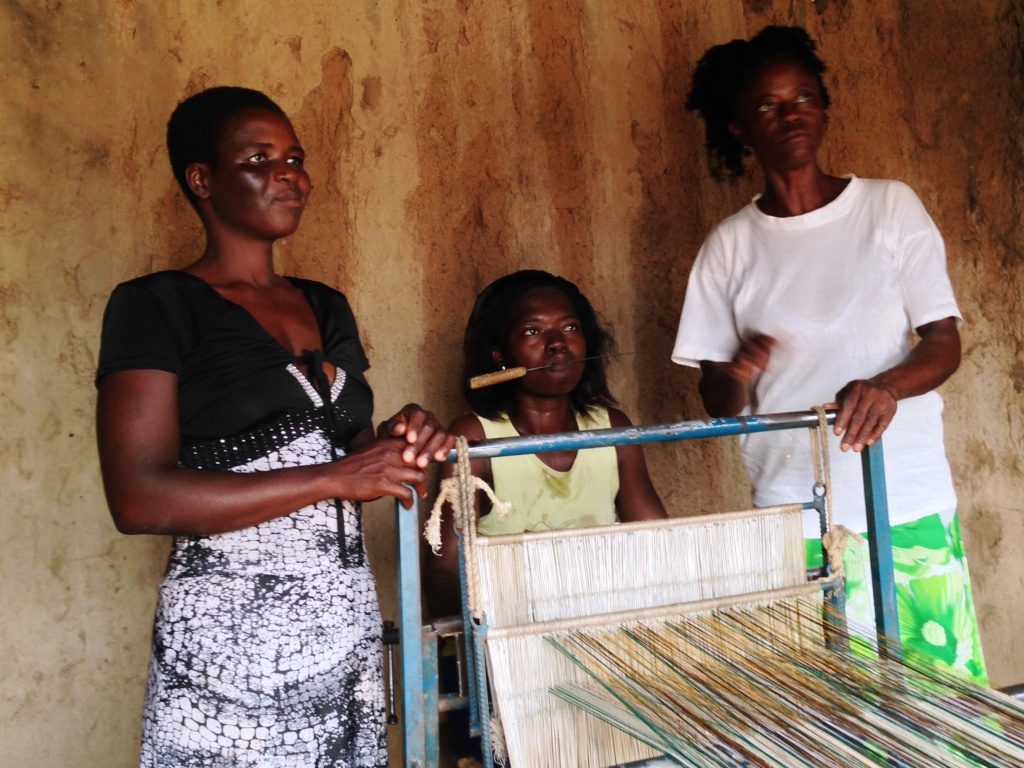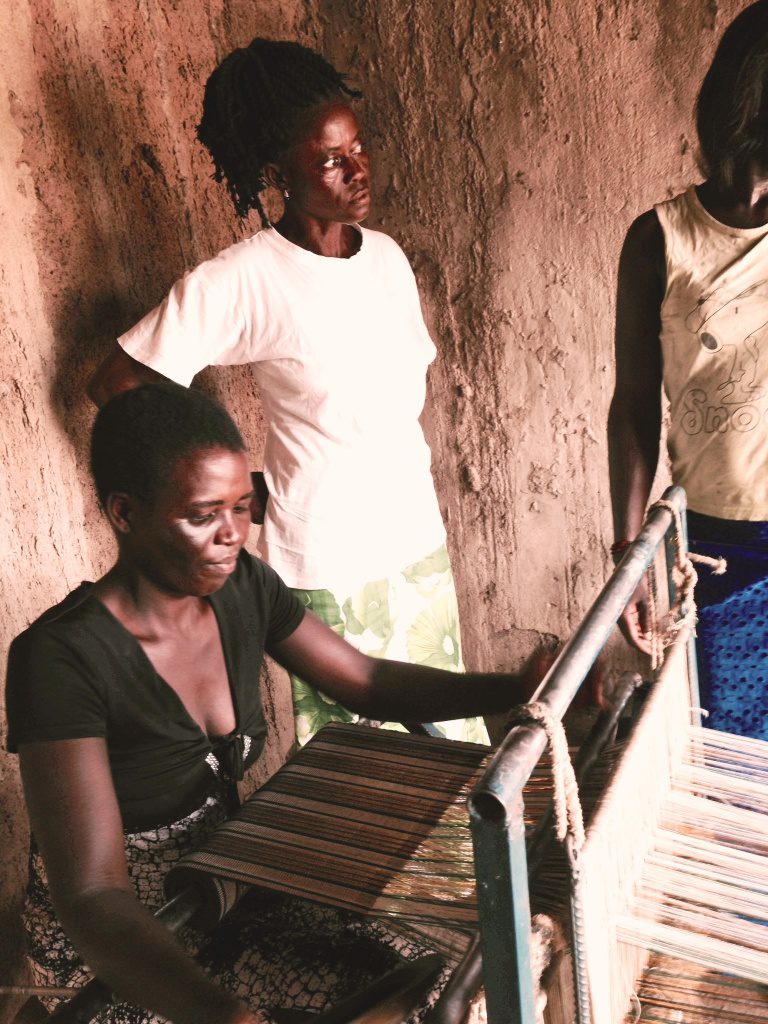Portiru, Vida and Nteryne have a business together weaving and selling traditional cloth. The three of them were part of a women’s association in Zambo which met once a month when ATE attended to discuss opportunities for support with enterprise. Portiru has been weaving for 7 years and Vida and Nteryne began weaving commercially when they successfully applied for the ATE grant to set up business together three years ago. 
They weave about 3 yards of cloth per week which they sell for about 160 Ghc per yard depending on the threads used. Once they have a significant quantity one of them will travel to Techiman to sell. They save together and share the money from their sales equally.
They weave by the roadside near their houses so that passers-by may become customers. They sometimes get large orders as women’s associations will buy in bulk so that they all wear the same cloth when they meet. They also gain new customers when people see their cloth being worn and ask where they can buy for themselves.There is lots of competition in the area but Portiru, Vida and Nteryne manage by buying high quality threads and sewing their cloth in wider and longer pieces than is available from other local weavers.
Portiru explains that the grant they received has really had a positive impact on the weaving trade she was already involved in. It has strengthened her earnings and enabled her as the breadwinner for her household to afford the fees to send her children to school.For Nteryne setting up business with the support of the ATE grant has also helped her to afford her children’s school books and provide for their education.
Nteryne’s husband supports the business by managing the book-keeping, helps out in any way he can and they combine the earnings from the business and what they gain from farming to support their family. Nteryne, who has been weaving for the shortest time, already has an apprentice in order to share the skills she has gained. For Vida, she says that she is proud of her weaving skills which nobody knew she had. She is widowed with four children and through the business she is able to use her skills to ensure that they have health insurance and that they never go to sleep hungry.
Business is good for the Zambo weavers. They explain that at the initial stages it was very challenging but they have been recording their sales and seeing a healthy profit though they admit that business can still be up and down. Sometimes this is due to the season as during farming season money is scarce so business is slow, sometimes they need to travel so they suspend weaving and selling for short periods and enjoy the flexibility they have to go to farm when they need to.
All of them agree that they learnt a lot from the ATE workshop which helped them to take the business seriously, gain customers and make profits. They have learnt some difficult lessons along the way, such as the time someone bought rotten, unusable threads on their behalf losing them money. Now they do all their purchasing themselves. They have ideas for expanding and diversifying into soap, groundnuts (buying when cheap, storing and selling when prices increase) and bulk buying thread to sell to the other weavers in the area.
The weavers are really happy with the situation their business is in now and want ATE to remain in partnership with them to keep driving them forward.